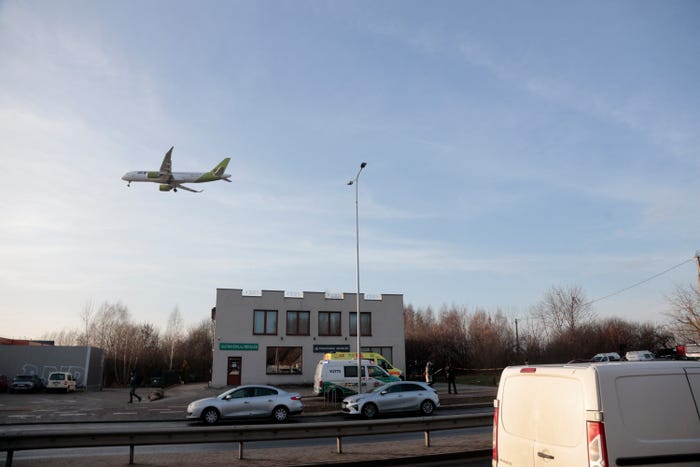UPDATE: Lithuania has closed its airspace for the third consecutive night due to balloons entering from Belarus, prompting urgent safety concerns. This latest incident has led to the suspension of operations at Vilnius Airport from 9:42 p.m. to 4:30 a.m., affecting approximately 47 flights.
Officials reported that these balloons, suspected to be used for smuggling cigarettes, pose a significant air safety threat. Lithuanian Prime Minister Inga Ruginiene has squarely blamed the Belarusian government, led by Alexander Lukashenko, for allowing these balloons to “run wild” across the border.
Just hours ago, a statement from authorities confirmed that the airspace restrictions were enacted in response to the balloons flying towards Vilnius Airport. This alarming trend follows a string of similar incidents, as Lithuania, a NATO member, raises the alarm over repeated airspace violations linked to Belarus.
Inga Ruginiene highlighted that a “large group of smuggling meteorological balloons” had been launched from Belarus, leading to airport closures not only in Vilnius but also in Kaunas. The prime minister announced that Lithuania is temporarily closing its borders with Belarus while the security council convenes on Monday to discuss the escalating situation.
Authorities have noted that the balloon incursions have become increasingly frequent, with reports indicating that 250 balloons crossed into Lithuania in just one month back in September 2024. The situation has drawn attention from other NATO allies, as the Baltic states face heightened threats from both Belarus and Russia.
Earlier in the week, local officials detected “several hundred markers” believed to be smuggling balloons, with some equipped with GPS trackers and SIM cards to facilitate tracking their cargo. So far this year, more than 100 individuals have been arrested for air smuggling, with 20 convictions already secured.
As tensions continue to escalate in the region, Lithuania is calling on tech companies and defense contractors to propose solutions for tracking and eliminating these balloons. Meanwhile, the European NATO alliance remains on high alert following a series of drone incursions over Poland, many believed to involve Russian drones operating from Belarusian territory.
This alarming development underscores the growing security challenges facing Lithuania and its NATO allies, raising questions about the effectiveness of current measures against aerial threats. The local populace is urged to stay informed as the situation evolves, with officials working diligently to enhance airspace security and safety.
Stay tuned for more updates as this situation develops.







